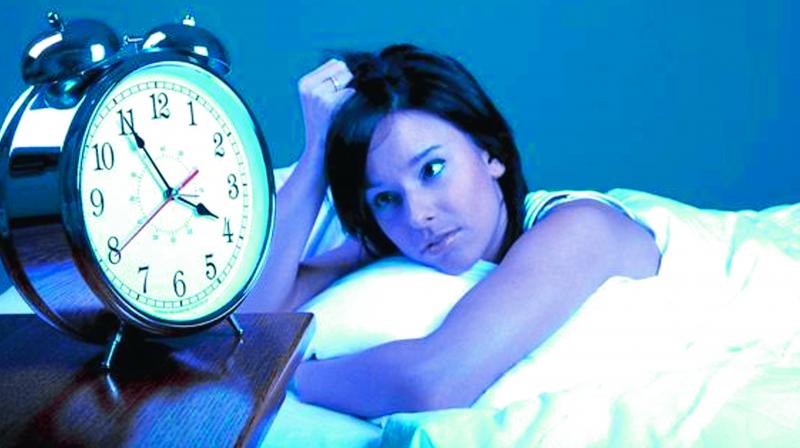Sleep tight, ladies
Hormones, screens and heavy meals could be keeping you from getting a good night's rest. Here's what you can do to change that.

According to a study recently published in Sleep Medicine Research, sleep disorders are twice as common among women as men. Women suffer from a loss of sleep due to hormonal changes during pregnancy, pre-menopause and post-menopause.
Among younger women, the problem can be attributed to lifestyle stresses and gadgets invading the bedroom. A lack of sleep can be one of the major causes of depression, anxiety and a decline in cognitive skills, explains Dr Srinivas Kishore Sistla, a senior ENT surgeon and sleep specialist.
Why do women complain of sleep problems?
Women suffer from sleep problems largely due to changes in oestrogen levels. Fluctuations in the hormone cause mood swings and affect sleep patterns. Many women find it difficult to wake up because they feel like they haven’t had enough restful sleep. At a clinical level, women don’t usually come to us complaining of a lack of sleep. They come with migraine or sinus problems, or a shooting pain in the head and neck region. It is only through our investigations that we find out they’re not getting enough sleep.
When hormones produce changes in the body, how can sleep quality be improved?
Menopause definitely hits women very hard. It takes a lot of physical and mental strength to deal with the changes that the body undergoes. A lot of women opt for over-the-counter medicines or sedatives to help them cope. In the long run, these drugs have severe side-effects. Instead, it is better to work towards implementing lifestyle changes and following a healthy regime to enjoy good quality sleep.
How does the lack of sleep affect cognitive skills?
A lack of sleep or an improper sleep cycle can affect one’s decision-making skills, listening skills, and the ability to understand one’s peers. Often, people come and tell us that they’re not able to understand their colleagues as quickly or as well as before. Ageing is responsible for this, to an extent, but so is the lack of sleep.
What changes can women make to ensure that they get enough restful sleep?
In the post-menopause stage, women should reduce their caffeine or tea intake after 6 pm. It is also important not to drink wine, or any other form of alcohol, in the evening. A protein-rich dinner can cause sleep problems as it leads to acid reflux, and so, that too should be avoided. An early dinner is recommended so there’s enough time for it to get digested. Blue light emissions from mobile phones, laptops and other devices also affect the sleep cycle. So, to maintain good sleep hygiene, it is very important to reduce one’s screen time.
Exercising after 6 pm can also affect one’s sleep cycle, as exercise gets the body pumped. It is a myth that exercising in the evening tires the body and results in sound sleep.
Is there a link between depression, anxiety and sleep?
In post-menopausal women, the physical changes cause an underlying depression that is usually identified only when a traumatic life event occurs. Menopause does take a toll on women, and it’s important to get them the right help. Their mental health can affect their sleep patterns and their physical health. In India, most elderly women have their families to act as support systems. But there is a growing percentage of women who require professional help.
What about women who undergo hysterectomies?
Those who undergo hysterectomies have to be put on hormonal therapy to ensure that they do not age faster. Their problems are advanced due to the removal of the uterus. Such women suffer from poor sleep, but it is often diagnosed very late. Sleep patterns that usually manifest in the early-60s are experienced at a much earlier age. Because of this, they’re often very irritated and they constantly complain of some physical ailment or the other.

